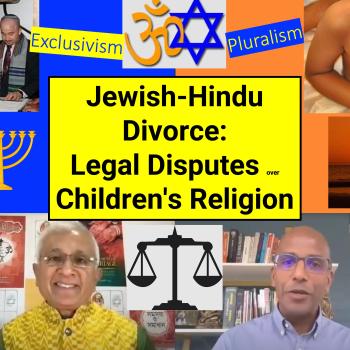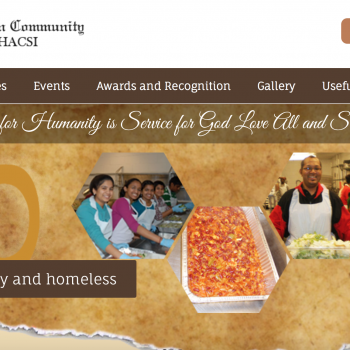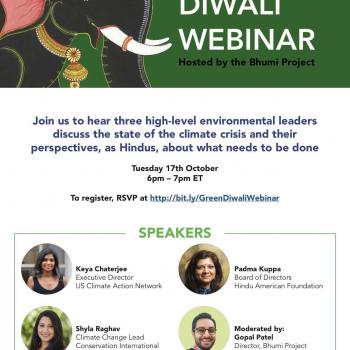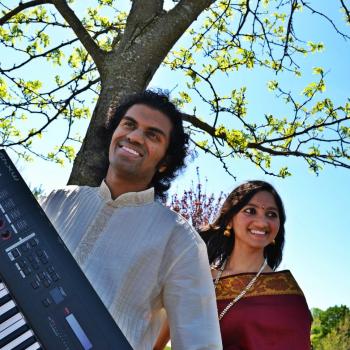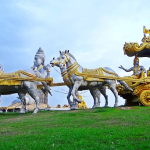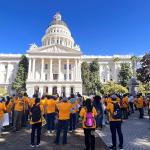I recently received an email about an event at Georgetown University’s Berkeley Center for Religion, Peace and World Affairs, where Rick Warren and Ruth Messinger will be the keynote speakers on Sharing the Message? Proselytism and Development in Pluralistic Societies: A Public Dialogue. On perusing the site, it appears that no one from the Indian or Hindu community will be on a panel during the day-long dialogue. India is home to one of the most pluralistic societies I know, and in need of development to address the economic challenges it faces. The Hindu American Foundation and the broader Hindu community have long sought to promote pluralism and especially to address the human rights abuses that occur as a result of predatory proselytization in India, where the majority of the world’s one billion Hindus live. Five years after HAF Board member Aseem Shukla pointed out that Georgetown wrongly excluded Hindus who are targets for proselytization from an event, history repeats itself.
Damning headlines such as “Christian enclave in India fears violence as Hindus press for conversions” from the Washington Post’s Annie Gowen continue to showcase the Western bias that incites fear of Hindu activism and attack Hindu nationalism while glossing over the challenges that conversion creates in developing nations such as India. Ms. Gowen’s words – “Fears from religious minorities in majority-Hindu India, where some Christians and Muslims worry that incidents of religious tolerance will rise with the advent of a conservative government led by Narendra Modi, himself a fervent Hindu nationalist.” – are misrepresentative at best, and are also easily debunked.
Western media must understand what Hindu nationalism means, and what a Hindu nationalist seeks. As The Diplomat’s Ankit Panda said nearly a year ago, “Hindu nationalism means many things to many people today in India.” He went on to say that, “At its most extreme poles, self-identified Hindu nationalists want to preserve India as the bastion of Hinduism, resorting to violence if necessary… However, more moderate Hindu nationalists – a category in which I believe the likes of former Prime Minister Atal Behari Vajpayee, Narendra Modi, and other BJP leaders can be included – take the view that India’s unique heritage as the birthplace of Hinduism and its overwhelming Hindu majority warrant that its government undertake policies cognizant of that reality.”
Headlines today feed the continued stereotype that Hindu activism is to be feared, even when it is meant to end the violence and human rights abuses that occur as a result of coercive conversion. Centuries of missionary efforts have converted entire populations to Christianity, leaving indigenous groups such as the Native Americans in North America, Babaylans in the Philippines, and Tainos in the Caribbean, decimated. And more recently, evangelicals are having a deadly impact on LGBT communities in many African nations, particularly with their moves to criminalize homosexuality. A hue and cry is raised about Ghar Wapsi, the effort to bring Hindus “back to the fold” – using tactics that have been learned from the colonizers and proselytizers – instead of focusing on the dubious practices of evangelicals.
The reality of Hindu majority India is that there is poverty, years of oppression to contend with and a constant onslaught from evangelicals – with church planting in remote villages that is apparent and appalling to most of us who regularly visit the lands of our ancestors. And as my fellow blogger at Patheos, Ambaa recently said, “Hindus aren’t the ones who need religious tolerance lectures.” She is correct in saying that faced with aggressive conversion tactics, some Hindus may become intolerant or defensive, but that is no reason to exclude all Hindus from the conversation.
The Georgetown event – Proselytism and Development in Pluralistic Societies: A Public Dialogue, at the Berkeley Center for Religion, Peace and World Affairs – is no public dialogue. Dialogue is possible when the oppressed and the oppressors come together and the victims’ voices are heard – when pluralistic Hindu voices are included alongside the Abrahamic ones (especially when the latter claim that they are the only ones who have the Truth). Without this, dialogue becomes a farce, a politically correct way to convert and conquer; pluralism is an obstacle to overcome rather than an attitude to cultivate – and religious groups move us further away from achieving peace in our world.



